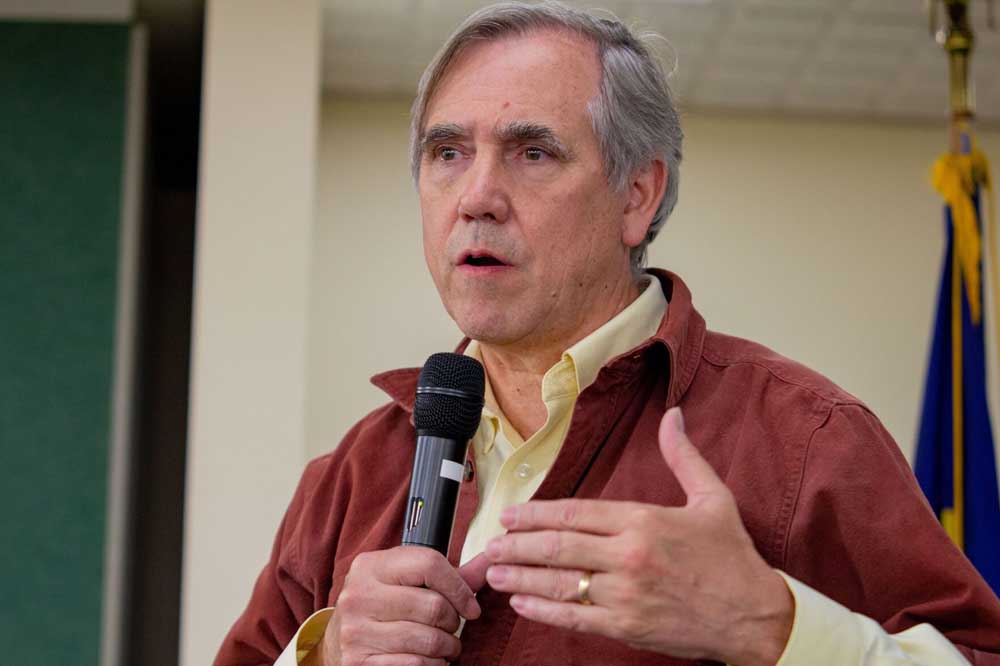Editorial: Which members of Congress get town halls right?
Published 5:00 am Friday, December 22, 2023

- U.S. Sen. Jeff Merkley answers questions from constituents at a Umatilla County town hall in May in the Pendleton Convention Center.
Oregon’s two senators, Ron Wyden and Jeff Merkley, Democrats, and Rep. Lori Chavez-DeRemer, a Republican, are sort of at different ends of the town hall spectrum.
Wyden and Merkley pledge town halls in each of the counties they represent every year. Wyden has one coming up in Jefferson County on Jan. 3.
Chavez-DeRemer holds them, too. She has held town hall meetings remotely. That arguably is a way to allow more people to attend who could not attend in person. It can also be more carefully scripted.
Which is right?
A town hall for members of Congress can be a revelatory meeting where they respond to questions from constituents and learn more about their district’s needs. They can explain their policies and listen to what constituents think.
The meetings can also devolve into shouting matches and protests. You don’t have to look hard on YouTube to find examples.
Is it fair to demand representatives show up in person to town halls in the communities they represent? Of course, it’s fair.
Is it understandable if some members of Congress don’t put as much emphasis on in-person meetings as others? Yes to that, too.
There has been at least one attempt to probe questions about congressional town halls more deeply.
Do they lead to better work, better representation by a member of Congress? We don’t think the answer is clear. Check the paper out here: tinyurl.com/Townhallz.
We’d argue there is no substitute for being available in person. But a town hall by telephone or Zoom is the next best thing.




